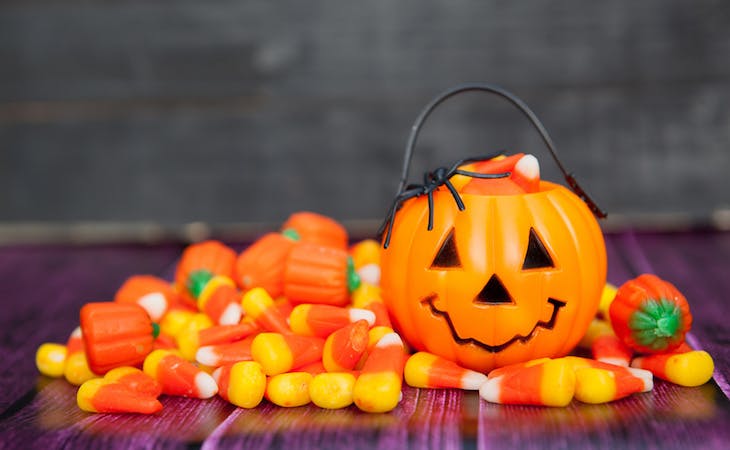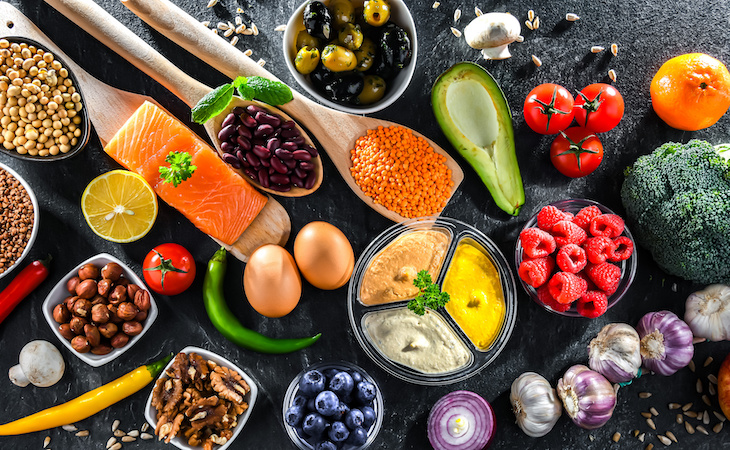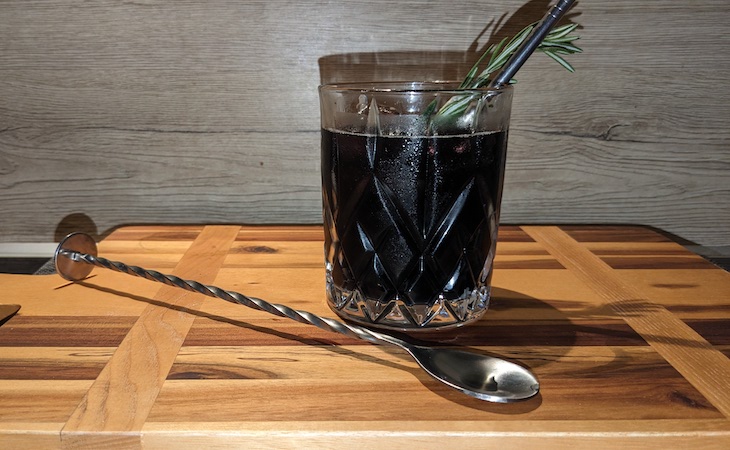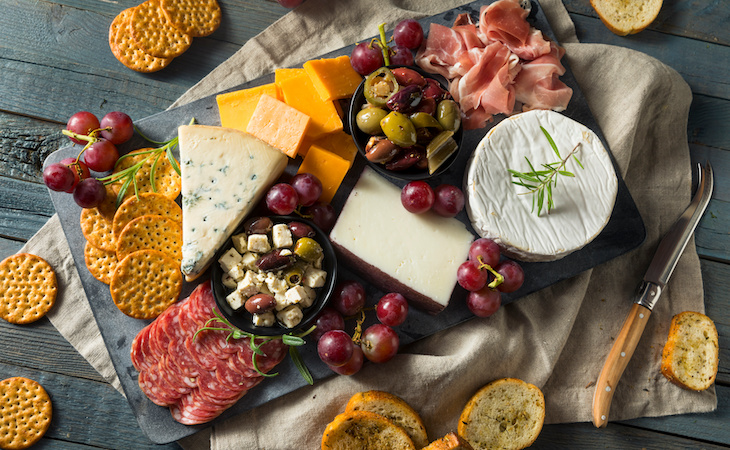Who doesn’t love dessert? If you guessed no one, then you’re probably right. Many of us have a sweet tooth that craves satisfaction.
But refined sugar, in particular, can do a number on your sleep—especially if you eat it too close to bedtime.[3] If you aren’t getting a good night’s sleep after indulging your sweet tooth, there’s very likely a direct connection between the two.
Below, learn more about the connection between sugar and sleep and how sugar affects your overall health. And, get tips for enjoying the sweet stuff (like all that Halloween candy on sale right now!) without having it wreck your shuteye.
How does sugar affect your sleep?
“Consuming too much sugar at night before bed causes your blood sugar levels to rise, and your pancreas releases insulin,” explains Alex Savy, certified sleep science coach and founder of SleepingOcean.com. “Sugar has been shown to increase restlessness at night and nighttime awakenings. [4] The insulin helps your body to break down the sugar and convert it into energy at a time when your body needs to rest. [3, 4] As a result, you may end up feeling overstimulated and restless due to the excess energy.”
In a 2016 study, scientists offered strong evidence that sleep and sugar don’t mix. [5] They recruited 26 healthy adults and monitored their sleep, using both restricted and unrestricted diets. [5]
When the subjects were allowed to eat whatever they wanted, they consumed less fiber but more sugar and saturated fats. The study found that subjects on an unrestricted diet had higher sleep onset latency (it took them longer to get to sleep) and lower quality sleep overall. [5]
In particular, higher consumption of sugar and saturated fats led to less deep sleep and more arousals (instances of waking up). [5]
Not only does sugar have the ability to mess with your sleep, but poor sleep also affects your sugar consumption. In a vicious circle, the more your sleep is disrupted, the more sugar you crave. [6]
That’s because when you’re tired from lack of sleep, you tend to eat more junk food. [6, 7]
Researchers at King’s College London studied 42 students and staff who were habitual short sleepers. Those who extended their sleep tended—of their own volition—to eat less sugar. [8]
“Sleep extension,” the researchers concluded, “may be a viable strategy to facilitate limiting excessive consumption of free sugars in an obesity-promoting environment.
Related: The 10 worst foods to eat before bed
What sugar does to your health
“Eating sugar activates the brain’s reward circuitry, and a complex web of hormones related to hunger and metabolism,” writes Michael Breus, PhD, “The Sleep Doctor,” on his blog.
He points out that merely seeing a sugary treat stimulates the brain’s reward system. The brain responds by releasing the pleasure hormone dopamine. [9]
If this all sounds a lot like a drug addiction, you’re right, says Breus. The dopamine-activated reward pathways in the brain that are affected by sugar are the same ones affected by alcohol, drugs, and other potentially addictive behaviors like gambling and sex. [9]
Poor sleep combined with eating sugary foods—and the extra weight that tends to accompany them—reduces the effectiveness of hormones, including leptin and ghrelin, that are responsible for suppressing hunger and regulating metabolism. It also interferes with the ability of the insulin produced by your pancreas to regulate your blood sugar. [6]
Sugar’s disruption of sleep also increases low-grade inflammation that contributes to disease. Sugar changes the healthy bacteria in your gut, which increases inflammation that, in turn, negatively affects sleep. [10]
Inflammation also can be painful which can make it difficult to fall and stay asleep. Plus, inflammation increases the level of the stress hormone cortisol, stimulating alertness—not a good thing when you want to sleep. [11]
Related: Are your sleep habits wrecking your metabolism?
How to keep sugar from ruining your sleep
Are some sugars better—or at least less bad than others? Can you pair sugar with another type of food to offset its negative effects on sleep? Are there alternatives to sugar and sugar-sweetened junk foods that will satisfy your sweet tooth without ruining your sleep?
Here’s what top nutritionists had to say about mitigating the negative effects of sugar on sleep:
Control your stress and watch what you consume
“Stress can cause us to use food as a means of comfort and control when we feel out of control,” says Trista Best, RD with Balance One Supplements. “In times of stress, it is important to be mindful of what you are putting into your body and the potential it has to create a cascade of other issues in your life which only increase stress all the more.” [12]
Limit alcohol intake at night
“Some alcoholic drinks contain a large amount of sugar, which raises your blood sugar levels,” says Savy. Stop drinking at least a few hours before bed to give your body time to metabolize the sugar and booze. [13]
Avoid processed, refined, or added sugars
“These are simply sources of empty calories that are highly detrimental to the gut microbiome and have been shown to induce inflammation in the gut and brain and increase the risk of developing symptoms of poor mental health and neurodegenerative diseases over time,” says Uma Naidoo, MD, Harvard-trained nutritional psychiatrist, professional chef, nutrition specialist, and author of This Is Your Brain on Food.
Naidoo suggests small servings of berries or other fruit—or a piece of 70% or greater natural dark chocolate—rather than foods with processed or added sugars.
But, she cautions: “Keep in mind that sugars are energy sources, and we don’t need much extra energy late in the day when preparing our bodies and brain for sleep.”
Go for whole foods with all-natural sugar content
Whole foods “provide plenty of fiber to go along with the sugar, which fills you up and makes it difficult to consume too much at once,” says Matthew Scarfo, NASM-certified nutritionist and contributor to the workout planning source Lift Vault. “Added sugar is worse simply because it’s far easier to consume in large quantities rather than natural sugars—such as raw honey or pure maple syrup—which are found in whole foods that are typically rich in fiber and other nutrients.”
Pair sugar with another type of food
“If you have consumed sugar,” says Clara Lawson, RDN with USAHemp and expert in personalized nutrition and dietary plans, “then I would suggest eating a handful of nuts such as almonds, walnuts, pistachios, or cashews. Nuts contain magnesium and zinc that collectively promotes better sleep and prevents sleeplessness.” [14]
Lawson also recommends dates as an alternative to artificial sugars.
Be mindful of the foods you keep in your home
“Take out the temptation,” says Shanda Sullivan, nutrition coach for the fitness and nutrition program My Diesel Physique, “and you will find your eating habits—and sleeping routines—will benefit from your conscientious shopping.”
She suggests stocking your fridge and pantry with fresh, unprocessed foods. That way, when you grab something to eat at night, “you aren’t tempted by anything that would do more harm than good, says Sullivan.
Choose fiber-rich fruit over foods with high added sugars
“Fruit is high in fiber, which takes longer to digest and also promotes satiety,” says Mary Wirtz, RD, consultant for the parenting website Mom Loves Best. “Furthermore, fruit is very nutrient-dense versus energy-dense, and it makes it easier to control calorie intake before sleep.”
Wirtz says one of her favorite sweet treats is a simple homemade fruit sorbet: “Simply blend two cups of frozen fruit of your choice with a splash of milk or milk alternative,” she suggests. She calls this “a delicious way to satisfy the sweet tooth without overindulging.”
Go for the sugar-free version
“Opt for sugar-free versions to prevent having a sugar rush,” advises Brenda Peralta, RD, consultant for Sensible Digs. For example, choose a no-sugar-added, low-fat ice cream to avoid getting overstimulated at night. Plain Greek yogurt is another option.
FAQs
Can sugar keep you awake at night?
Sugar can keep you awake at night. It causes excess energy production, which may overstimulate you and make you feel restless. Overconsumption of sugar at night can also lead to less deep sleep and more nighttime awakenings. [3, 4]
For more nighttime noshes that won’t ruin your sleep, check out our list of the best late-night snacks to eat before bed.
References
- St-Onge MP, Mikic A, Pietrolungo CE. Effects of Diet on Sleep Quality. Adv Nutr. 2016;7(5):938-949. Published 2016 Sep 15. doi:10.3945/an.116.012336
- Rahman MS, Hossain KS, Das S, et al. Role of Insulin in Health and Disease: An Update. Int J Mol Sci. 2021;22(12):6403. Published 2021 Jun 15. doi:10.3390/ijms22126403
- Kräuchi K, Cajochen C, Werth E, Wirz-Justice A. Alteration of internal circadian phase relationships after morning versus evening carbohydrate-rich meals in humans. J Biol Rhythms. 2002;17(4):364-376. doi:10.1177/074873040201700409
- Katagiri R, Asakura K, Kobayashi S, Suga H, Sasaki S. Low intake of vegetables, high intake of confectionary, and unhealthy eating habits are associated with poor sleep quality among middle-aged female Japanese workers. J Occup Health. 2014;56(5):359-368. doi:10.1539/joh.14-0051-oa
- St-Onge MP, Roberts AL, Shechter A, Choudhury AR. Fiber and Saturated Fat Are Associated with Sleep Arousals and Slow Wave Sleep. Journal of Clinical Sleep Medicine. 2016;12(01):19-24. doi:10.5664/jcsm.5384
- Taheri S, Lin L, Austin D, Young T, Mignot E. Short sleep duration is associated with reduced leptin, elevated ghrelin, and increased body mass index. PLoS Med. 2004;1(3):e62. doi:10.1371/journal.pmed.0010062
- Sejbuk M, Mirończuk-Chodakowska I, Witkowska AM. Sleep Quality: A Narrative Review on Nutrition, Stimulants, and Physical Activity as Important Factors. Nutrients. 2022;14(9):1912. Published 2022 May 2. doi:10.3390/nu14091912
- Al Khatib HK, Hall WL, Creedon A, et al. Sleep extension is a feasible lifestyle intervention in free-living adults who are habitually short sleepers: a potential strategy for decreasing intake of free sugars? A randomized controlled pilot study [published correction appears in Am J Clin Nutr. 2018 Apr 1;107(4):676]. Am J Clin Nutr. 2018;107(1):43-53. doi:10.1093/ajcn/nqx030
- Rada P, Avena NM, Hoebel BG. Daily bingeing on sugar repeatedly releases dopamine in the accumbens shell. Neuroscience. 2005;134(3):737-744. doi:10.1016/j.neuroscience.2005.04.043
- Turnbaugh PJ, Ridaura VK, Faith JJ, Rey FE, Knight R, Gordon JI. The effect of diet on the human gut microbiome: a metagenomic analysis in humanized gnotobiotic mice. Sci Transl Med. 2009;1(6):6ra14. doi:10.1126/scitranslmed.3000322
- Hirotsu C, Tufik S, Andersen ML. Interactions between sleep, stress, and metabolism: From physiological to pathological conditions. Sleep Sci. 2015;8(3):143-152. doi:10.1016/j.slsci.2015.09.002
- Bremner JD, Moazzami K, Wittbrodt MT, et al. Diet, stress and mental health. Nutrients. 2020;12(8):2428. doi:10.3390/nu12082428
- Spadola CE, Guo N, Johnson DA, et al. Evening intake of alcohol, caffeine, and nicotine: night-to-night associations with sleep duration and continuity among African Americans in the Jackson Heart Sleep Study. Sleep. 2019;42(11):zsz136. doi:10.1093/sleep/zsz136
- Rondanelli M, Opizzi A, Monteferrario F, Antoniello N, Manni R, Klersy C. The effect of melatonin, magnesium, and zinc on primary insomnia in long-term care facility residents in Italy: a double-blind, placebo-controlled clinical trial. J Am Geriatr Soc. 2011;59(1):82-90. doi:10.1111/j.1532-5415.2010.03232.x








